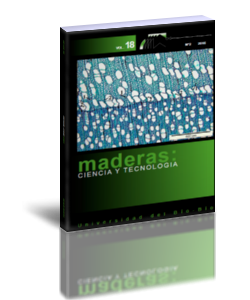Performance of copper azole treated softwoods exposed to marine borers
Keywords:
Copper azole, marine borer test, chemical analyses, Scots pine, Black pine, Turkish fir, Teredo navalis.Abstract
Wooden material has been used for shipbuilding and structural purposes in the marine environment since ancient times. Wood being used in the sea water can be damaged by marine wood boring organisms, which can turn marine wooden structures unserviceable with great economic cost. Using naturally durable species and preservative treated wood can increase the service life of wooden maritime structures and avoid or minimise the damages caused by marine borers. In this study, Scots pine (Pinus sylvestris), Black pine (Pinus nigra) and Turkish fir (Abies bornmülleriana) naturally grown and economically important wood species in Turkey were treated with copper-azole and evaluated in marine trials for 7 and 14 months in the Western Black Sea region. In this experiment, Teredo navalis was the only teredinid species identified. Copper-azole treated fir and Scots pine specimens suffered no attack, after 7 and 14 months exposure, except four panels which suffered minor damage. However, copper-azole treated Black pine panels were moderately damaged, and all of the control panels of the softwoods were strongly attacked. The average largest shell diameter was found to be 4,79 mm in Scots pine, while the longest pallets (4,71 mm) was found in Black pine. All untreated test panels scored an average of 4 (heavily attacked) after a 14 month period. The cellulose ratio of Black pine decreased from 56 % to 50 %, and the holo-cellulose ratio from 76 % to 71 %. The treated samples showed resistance against marine borers although the copper (cu) leaching was high during the 14 months exposure underwater.

































